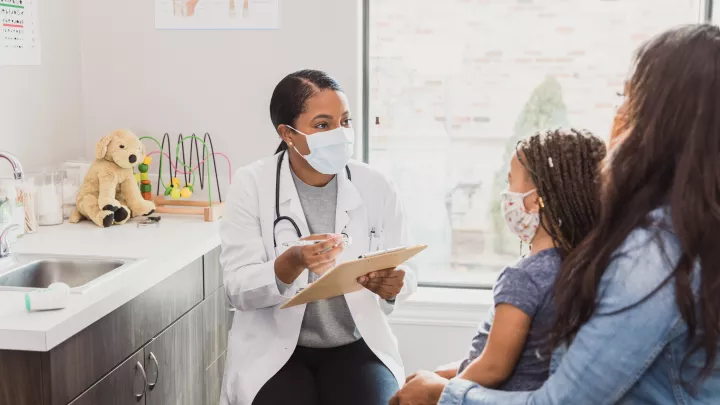Protecting Research Subjects FAQs
The Human Subjects Protection Program at Children’s Hospital Los Angeles is dedicated to protecting all of those individuals who participate in research conducted by physicians and scientists at our hospital and research institutes.
What is a research study?
Research is also called a study. A study can tell us who, what, why, when and how about an issue or problem. Some studies add a medication or a specific care or treatment to see if it helps a problem or an issue.
A study has specific questions it tries to answer about an issue or problem. The question might ask, “Does a medication work?” or “Does one treatment work better than another?” Real-life examples might be, “Does drug X work in treating a specific disease?” or “How do kids with diabetes cope with chronic illness?”
What are the risks of being in a study?
A risk is the chance of being hurt when you are in a study. Studies may have risks. Some risks are likely, and some are less likely. Risks might include things that affect your body (physical), mind or thinking (psychological), money (financial) or your interactions with other people (social).
What are the benefits to being in a study?
A benefit is when something good happens or someone is helped because of the study. Some studies have no direct benefits. Some studies have a future benefit to others with a specific disease or disorder. Other studies offer a particular study medication, medical tests and/or health education to those who are in the study.
Do I have to be in the study?
You do not have to be in a study. Being in a study is called “participating.” Participating, or the choice to be in a study, is voluntary. If you choose to be in a study, you are called a “participant.”
Who decides what research is done at Children’s Hospital Los Angeles?
All human research at Children’s Hospital Los Angeles is reviewed by the people at the hospital’s Human Subjects Protection Program (HSPP).
What does the Human Subjects Protection Program (HSPP) do?
The program looks at all studies to make sure that they do not place people at risk or that the risks are as low as possible. They also ensure that the risks and benefits of the study are fair to the people in the study. They make sure that the research is done the right way.
Who is in charge of a study?
A person called a Principal Investigator runs the study. The Principal Investigator also is called the “PI.” The PI makes sure that everyone working on the study does what they are supposed to do. They are there to make sure the people in the study (the participants) are safe.
Will the information I give in the study be protected?
Your information is protected by federal and state laws. The program looks at all studies to make sure that your information is safe. What are my rights if I am in a study? You have the right to know that you are in a study. You have the right to know what the study is about, and what we are trying to learn by doing the study. You have the right to know about any risks and benefits of the study. You have the right to stop at any time. You have the right to be treated with respect.
Who can I talk to if I have questions about being in a study?
If you would like to discuss problems, concerns or have questions, obtain information or offer input, please call 323-361-1846 to speak to someone in the Human Subjects Protection Program office at Children’s Hospital Los Angeles. You also may email your questions or concerns to hspp@chla.usc.edu.

